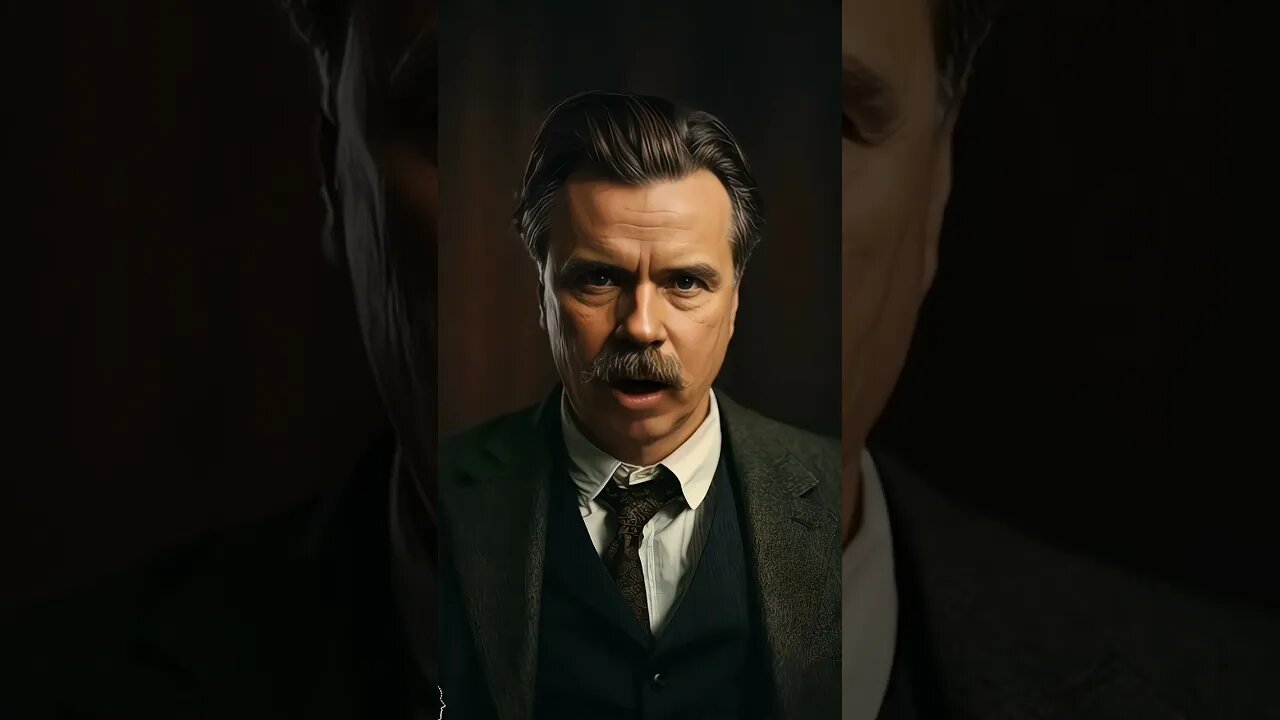Premium Only Content

Friedrich Nietzsche German Philosopher 4th 8 Quotes #fyp #quotes #motivationalquotes #philosophy
German philosopher, poet, cultural critic, philologist, and composer Friedrich Wilhelm Nietzsche (15 October 1844 – 25 August 1900) had a significant impact on the development of modern philosophical thought. He began his professional life as a classical philologist and then shifted his focus to philosophy. At the age of 24, he was appointed to the Chair of Classical Philology at the University of Basel, a position he held until 1879 when he left due to the ongoing health issues that plagued him throughout his life. He wrote the bulk of his major works at this time. At the age of 44, he collapsed and lost all mental capacity due to paralysis and, most likely, vascular dementia. Elisabeth Förster-Nietzsche, his sister, took care of him after their mother passed away in 1897. The combination of Nietzsche's illness and many strokes led to his death in 1900.
A lover of aphorisms and irony, Nietzsche's work ranges from philosophical polemics to poetry, cultural critique, and fiction. His radical critique of truth in favour of perspectivism, his rejection of Christian morality and his theory of master-slave morality, his affirmation of life through art in the face of the "death of God" and the profound crisis of nihilism, the concept of Apollonian and Dionysian forces, and his characterization of the human subject as the expression of competing wills, collectively understood as the "I," are all central to his philosophy. His ideas on the Übermensch and endless reincarnation were equally groundbreaking at the time. Later in his career, he focused more on the individual's capacity for innovation in the pursuit of aesthetic well-being and the rejection of traditional moral standards. Art, philology, history, music, religion, tragedy, culture, and science were all represented in his oeuvre, which was influenced by Greek tragedy as well as Zoroaster, Arthur Schopenhauer, Ralph Waldo Emerson, Richard Wagner, and Johann Wolfgang von Goethe.
-
 1:00:08
1:00:08
Trumpet Daily
20 hours ago $3.39 earnedBanning Mystery of the Ages - Trumpet Daily | Jan. 17, 2025
3.91K16 -
 15:10
15:10
Chris From The 740
1 day ago $0.10 earnedEAA Girsan Disruptor X 500-Round Review: Is It Reliable?
1.24K -
 1:00:38
1:00:38
PMG
14 hours agoCarnivore & Dr. Shawn Baker - Health Starts With Food
1.74K -
 1:28:13
1:28:13
Kim Iversen
15 hours agoCancelled Chef Pete Evans Exposes The One Change That Could End Big Food and Pharma
79K77 -
 4:20:21
4:20:21
Nerdrotic
17 hours ago $77.13 earnedDaradevil Born Again, Comics Industry CRASH, Neu-Hollywood REBUILD | Friday Night Tights #337
236K50 -
 1:32:34
1:32:34
Glenn Greenwald
13 hours agoThe Future of Gaza With Abubaker Abed; Journalist Sam Husseini On His Physical Expulsion From Blinken’s Briefing & Biden’s Gaza Legacy | System Update #391
120K92 -
 1:34:48
1:34:48
Roseanne Barr
15 hours ago $24.01 earnedWe are so F*cking Punk Rock! with Drea de Matteo | The Roseanne Barr Podcast #83
93.7K79 -
 1:08:20
1:08:20
Man in America
16 hours ago🇨🇳 RedNote: A CCP Trojan Horse Deceiving Americans? w/ Levi Browde
48.1K63 -
 3:55:11
3:55:11
I_Came_With_Fire_Podcast
19 hours agoTrump SABOTAGE, LA FIRE CHIEF SUED, and BIDEN’S LAST F-U!
32.5K8 -
 2:59:47
2:59:47
Joker Effect
11 hours agoUkraine in a video game? Hardest thing I have done. S.T.A.L.K.E.R.2 Heart of Chornobyl,
114K8